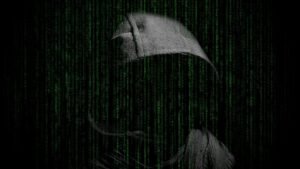Reviews
User Score
Rate This
Descriptions:
Navigating the Digital Minefield: Understanding Website Hacking
The internet, a vast landscape of information and connectivity, also harbors a darker side. In this digital wilderness, lurks the ever-present threat of website hacking. Defined as the malicious intrusion into a website with harmful intent, this practice encompasses a spectrum of activities, from black hat hacking for criminal gain to the more nuanced world of ethical hacking employed for security assessments.
Black website hacking, the nefarious side of the equation, often aims to steal sensitive data like credit card numbers or user credentials. These dark knights of the web deploy an arsenal of techniques, from brute force attacks to sophisticated social engineering scams, to exploit vulnerabilities in a website’s code or security infrastructure. The consequences of such intrusions can be devastating, causing financial losses, reputational damage, and even identity theft.
But not all hacking exists in the shadows. In the world of ethical hacking, skilled professionals don the white hat, using their knowledge to identify and expose vulnerabilities before malicious actors can exploit them. Often employed by security firms or organizations themselves, ethical hackers undergo rigorous training in website hacking courses, learning the tools and techniques of their black hat counterparts, but with a noble aim: to strengthen defenses and prevent attacks.
Understanding the intricacies of website hacking, even from a non-technical perspective, empowers individuals and businesses to safeguard their online presence. Awareness of common tactics like cross-site scripting (XSS) and SQL injection attacks can help users navigate the web with cautious eyes. For website owners, investing in security audits and penetration testing conducted by ethical hackers can expose hidden vulnerabilities and provide invaluable insights for patching up their digital fortress.
Learning website hacking, in a controlled and ethical environment, can be a valuable experience. Websites like HackTheBox and CTFtime offer a safe space to test one’s skills against simulated challenges, building a foundation for responsible security practices. However, it’s crucial to remember that attempting to hack real websites, even with good intentions, is illegal and can have serious legal repercussions.
Ultimately, website hacking is a complex issue with both destructive and constructive facets. By understanding its nature, recognizing its dangers, and appreciating the role of ethical hacking in securing our digital world, we can navigate the online landscape with greater awareness and confidence. As technology evolves, so too will the tactics of hackers, both black and white. The responsibility lies with each of us to stay informed, stay vigilant, and contribute to a safer, more secure internet for all.








